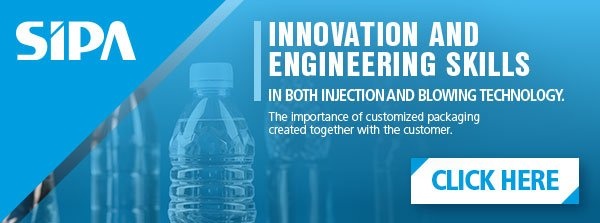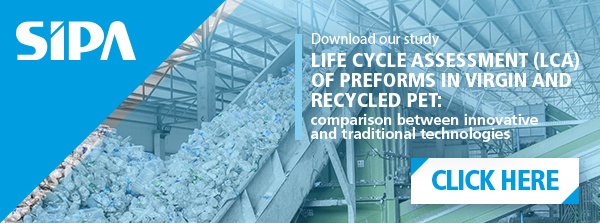
In recent years, an increasingly evident problem has emerged globally: the shortage of experienced and technically qualified personnel. This problem has spread across a wide range of industrial and commercial sectors, but it is also relevant in the packaging industry.
The entire production process requires specialized skills, from the design of innovative and functional packaging, to the management of highly automated production lines.
However, the growing shortage of skilled personnel has made it difficult for companies in the sector to find and retain professionals with the necessary skills, highlighting a number of challenges, which have led to proposing a range of services and activities aimed at compensating for this shortage.
In fact, many companies, to address this situation, are focusing their efforts on training and staff development programs to fill existing skills gaps, increasing investments in advanced technologies and remote support and training services needed to raise the technical knowledge.
What the numbers say about technical staff shortages
A Gartner survey revealed that companies view talent shortages as the most significant barrier (64%) to adopting emerging technologies. This obstacle is considered much more significant than implementation costs (29%) and security risks (7%).
Two out of three top managers from companies operating in an international context believe that the lack of skills and adequate professional figures is one of the three most urgent problems to be addressed within their respective companies in the next three years.
The issue of the "skill gap" is therefore widely discussed and remains highly topical.
The research conducted in 2022 by the Cornestone People Research Lab in collaboration with The Starr Conspiracy, which involved over 800 business leaders, including founders, presidents, high-level executives, and 1800 employees of medium and large companies active internationally, confirms a significant trend: there is a strong correlation between company performance and the quality of support offered for the development of new skills to staff.
Focus: Issues related to packaging equipment
Last but not least, technologies and industrial processes have become increasingly advanced. This often requires a higher level of expertise and specialization on the part of technical staff.
The packaging industry has seen an increasing demand for qualified technical personnel. This demand is fueled by 3 key factors:
- technological evolution
- the need for innovation
- market competitiveness
Within this framework, especially in the most developed countries, there is an aging of the workforce in the technical sector. Experienced people are withdrawing and this creates a lack of knowledge and experience that is difficult to fill.
READ ALSO: "OLD AND NEW MACHINERY REGULATIONS: FOCUS ON MAINTENANCE AND MODIFICATIONS TO MACHINERY AND LINES"
Solutions to technical staff shortages: remote support and augmented reality applications
To fill these gaps, the most developed companies are developing remote supports that take advantage of augmented reality (AR).
We are talking about advanced technologies that allow you to offer your customers remote technical assistance, based on simplicity and efficiency, by turning to operators who are not highly qualified.

How remote support with AR can take place
Support via augmented reality takes place through apps installed on mobile devices such as smartphones, tablets or smart glasses, offering a plurality of solutions depending on specific cases.
Let's take a look at the main ones:
Live Video Sharing: Using the AR app, the field operator can start a live video sharing session with a remote technician. This allows the expert to see in real time what the operator is seeing in the field through the device's camera.
Annotations and markups: During the video sharing session, the expert can add annotations and markups directly on the screen of the field operator's device. Options may include guidance on how to make a repair, adjust machine settings, or troubleshoot other operational issues.
Interactive Assistance: The parent company technician can provide detailed instructions and specific assistance to the operator. This is possible through the superimposition of schemes or specific diagrams directly on the video images to illustrate the steps to follow.
Use of AI for diagnosis and intervention: AI applications will be able to increasingly support users, especially those who are less specialized. For example, in the event of a technical problem, AI-based tools will be able to autonomously analyze the contents of the manuals to provide the operator with indications on the actions to be taken to solve the situation. All this, guaranteeing a response returned in the writer's language, regardless of the language in which the specific manual/document is located. Solutions already in use for companies that are particularly advanced on the technological side.
READ ALSO: "THE IMPORTANCE OF AUDITING A PLANT"
Access to Technical Documentation: Through the AR app, the technician can provide the operator with instant access to technical documentation, manuals and reference guides. This can help solve problems more efficiently.
Remote Diagnostics: The expert can use the real-time vision and the information collected to make a remote diagnosis about the problems of the machines or the plant.
Remote training: AR can also be used to provide remote training to operators. Experts can conduct interactive training sessions in real-time, illustrating best practices and procedures.

The benefits of AR support
Benefits of remote support with augmented reality:
Reduced downtime: Immediate, interactive support allows you to resolve issues faster while minimizing downtime on machines and production processes.
Cost savings: AR eliminates the need to move experts on-site, saving costs for businesses.
Improved training: AR-based remote training can be more effective and efficient than traditional training, not least because it is more timely.
Exchange of communications with experts: Companies can receive support from experts, almost always technicians from the companies that manufacture that type of machine.
Improved preventive maintenance processes: AR can be used to conduct preventive inspections and to monitor the status of machines or the entire line in real-time.





